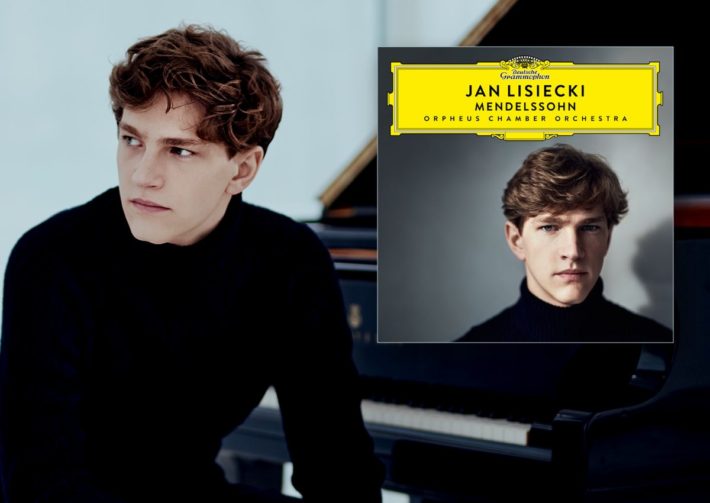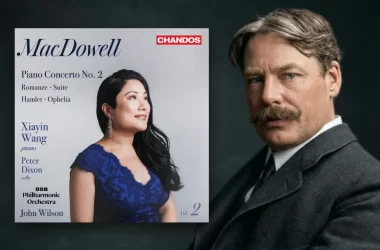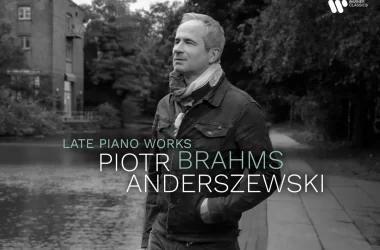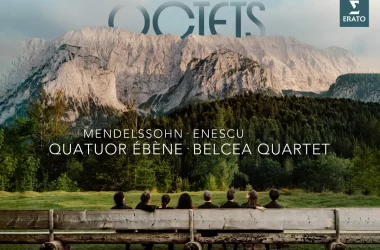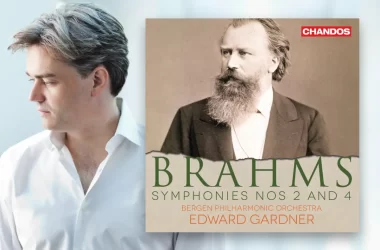We are under a Mendelssohn attack of sorts, with at least three distinguished recent releases of the two Piano Concertos, one on period instruments by Roland Brautigam reviewed here not long ago, the other by the Mendelssohn devotee Roberto Prosseda. This release, like Brautigam’s, also uses modest orchestral forces, with the conductor-less ensemble “Orpheus Chamber Orchestra” and a pianist with few concerto recordings under his belt.

Lisiecki treats the more famous First Piano Concerto classically, almost Mozartian in his approach. This gives refreshing transparency and dexterity to the pianist’s impressive fingerwork and to the ensemble’s fun exchange of ideas with the soloist (3:00 onward is a good example). The exemplary dialogue reminds us what fantastic concerto partners the Orpheus are, going back to their superb partnership of Mozart Piano Concertos with Richard Goode in the late 1990s.
Some listeners may want some more romantic gestures and additional pedaling in the first movement, but the second movement is marvelously done, with assured simplicity and nice strings support. The third movement is adequately playful. All in all, it’s a performance that charges through from start to finish, audibly enjoyed by the participants.
The second concerto is somehow more disjointed here in the outer movements, and the live recording more evident, with the strings a bit lacking in focus and intonation, the piano more aggressively forwardly balanced. Yet here again we have a nicely executed slow movement, musically, perhaps, the best movement of this often overlooked piece.
Solo Works
Lisiecki fills the album with Mendelssohn’s best large efforts for the solo piano, the “Variations sérieuses”
and “Rondo Capriccioso”. Risking of being overly musicological, it’s worth mentioning what a pleasure it is to follow the musical score of the variations while hearing this performance, noting how Lisiecki observes all the small dynamic and phrasing instructions by the composer. Having said that, one wishes he would let go a little sometimes, as in the less accurate but altogether more thrilling performance of this piece by Alfred Brendel, recently surfaced and released on Decca, or in other great performers of this piece, such as Murray Perahia or Stephen Hough, to name just a few.
The Rondo Capriccioso is nicely done indeed, and here as in the rest of this album, there is no doubt with Lisiecki’s technical command. But after the lovely introduction, with all of its brilliance, the performance is a bit severe and, well, not much capricious.
Lisiecki’s fans will surely won’t be disappointed. For a tighter, more coherent and convincing account of the two piano concertos, Howard Shelley and the also modestly sized ensemble “The Mozart London Players” is still the best choice. This version and the new Brautigam period take can be considered as a solid addition to a Mendelssohn collection.
Top image: © Deutsche Grammophon © Christoph Köstlin
Mendelssohn: Concertos for Piano and Orchestra Nos. 1&2, Variations Sérieuses op. 54. Rondo capriccioso op. 14, Song Without Words in op. 19b/6 (“Venetian Gondola Song”)
Orpheus Chamber Orchestra
Jan Lisiecki – Piano
Deutsche Grammophon, CD 0289 483 6471 8


